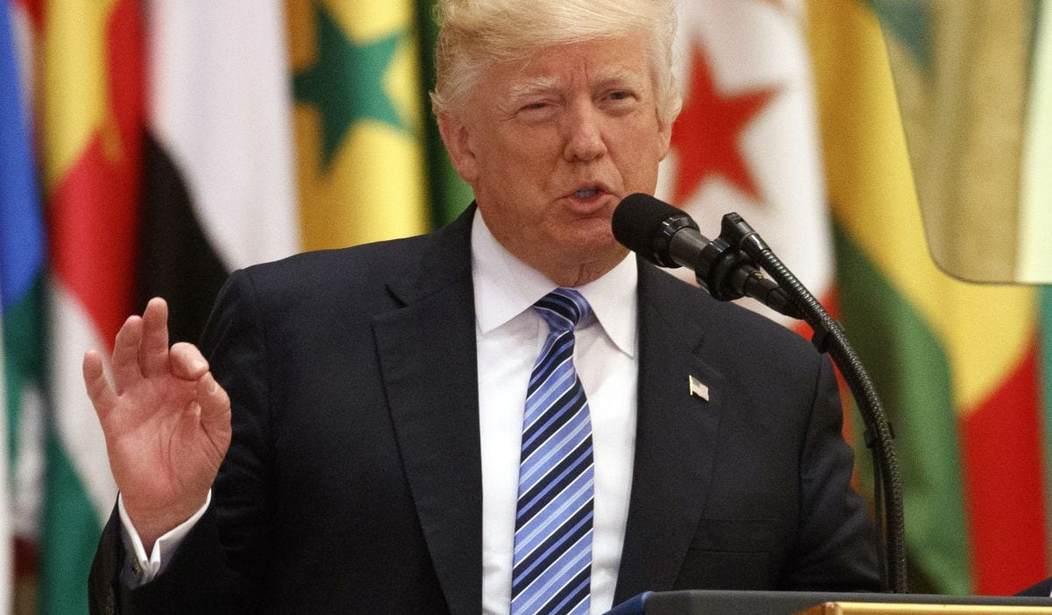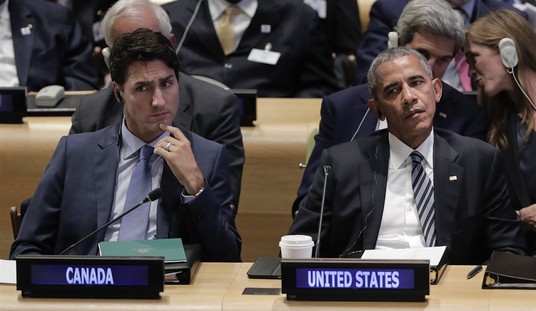It’s been six months since Trump’s inauguration, and I admit I’m still trying to understand him. I eventually came around to the notion that the sort of core principle of Trump is that he is a salesman, the sort of hard-driven, manipulative, Always Be Closing salesman that David Mamet captured so vividly in Glengarry Glen Ross, as I wrote in “What’s Trump’s Deal?” To summarize, I basically think that what we should always expect of Trump is that the particular deal he’s trying to close will always be the first thing on his mind, that he will exaggerate right up to the edge of any facts, and that he honestly doesn’t worry about being consistent because being consistent frankly doesn’t much help to close the deal.
Looking at Trump as a salesman, though, means we can explain how someone who has largely been a fairly liberal New York Democrat, or a very liberal New York Republican (when he wasn’t an independent, or aligning himself with the Reform Party), came around to be a kinda-sorta conservative Teddy Roosevelt Republican Progressive populist. It isn’t so much that he has the ideals of a conservative; instead, like Fox News did 20 years ago, what Trump did was identify an underserved market: he recognized there were enough voters outside the twenty top media markets who were disaffected, tired of being called names like “deplorable” and “bitter clingers,” tired of having their very real problems either ignored or actively exacerbated by the elites who say they’re trying to “help” the “little guy.” Once he identified that market, I think he’s been actually quite careful to make sure what he says is quite precisely targeted.
Yes, I know I just said he is very careful with what he says, and that this isn’t the common opinion. Just assume I’m on a roll for now and we’ll see if the Germans really did bomb Pearl Harbor.
This week, instead of Trump, I’ve found myself instead trying to understand the people around him, especially among the press, the pundit class, and among the fanatical #NeverTrumpers. There have been several things that factor into this: a carefully edited video put together to make the case that Trump is in early-onset Alzheimer’s .(Two things to remember about this: first, a partisan’s edited video is never going to be an adequate diagnostic tool, especially to diagnose someone with whom the doctor has never actually met clinically; and that consequently, there is a rule called the Goldwater Rule, in which the American Psychiatric Association says explicitly that this kind of remote-control diagnosis is both “unethical and irresponsible.”)
Second, we have the kerfuffle about the supposed investigation of Trump for obstruction of justice for firing Comey. This prompted a Trumptweet:
I am being investigated for firing the FBI Director by the man who told me to fire the FBI Director! Witch Hunt
— Donald J. Trump (@realDonaldTrump) June 16, 2017
The immediate reaction was dumb, if obvious: a bunch of people then ran with “Trump has confirmed that he’s being investigated for obstruction of justice by the special prosecutor!”
Notice two things: first, that’s not what Trump said. He said “being investigated.” Now, anyone paying attention would react to that with “well, duh.” The groups investigating Trump are legion: various House and Senate committees, the special prosecutor, and who knows who else?
And second, this was responding to a Washington Post story that said Trump was being investigated.
I’ve talked before about how the way to measure information content is by observing the size of the surprise. As far as I can see, the only information there was the WaPo story that Mueller was investigating Trump for obstruction of justice. Which was eventually denied.
So, much like the whole argument over whether or not Trump’s people had been “wiretapped,” the real issue here is that Trump unwisely took the Washington Post’s reporting seriously.
The last straw this weekend was when Trump met with the president of Panama and said: “We did a good job on the Panama Canal.” Twitter exploded:
Trump meets w/ the leader of Panama, says "we did a good job building" the Panama Canal—a structure that's been around for 100+ years ago. pic.twitter.com/uUBJKVDjAP
— Kyle Griffin (@kylegriffin1) June 19, 2017
This was the tweet that launched a thousand jackasses, all of them saying, “OMG Trump thinks HE built the Panama Canal!” Now, most of these people are journalists or at least people who claim a certain degree of education, so you would think that they would recognize Trump was referring to the collective of which he is the head of state, i.e., the United States. It apparently didn’t go over the head of the president of Panama, who smiled and agreed. It just went over the head of, well, practically everybody.
So, this all gelled into a Theory of the Trump-Era Press, much like my previous Theory of Trump. Here it is: I think the general press starts with two assumptions:
- Trump is a cad, a braggart, a blackguard, and a con-man.
- Trump, for all his billions, books, and TV series success is actually of subnormal intelligence and/or otherwise mentally impaired, while I am a genius.
Now, I am not unfamiliar with feeling like the smartest one in the room, and I’m often right. But one of the lessons I’ve learned from that is that if you do find yourself thinking you’re the smartest person in the room, you’d best assume that you’re actually the dumbest person in the room. When someone else says something, especially if you intend to report on it, carefully listen to what the other person is saying. Assume that other person is smarter than you, and try to make sense of what they’re saying.
It comes back to that notion that information is provided by the surprise. Reporters should be looking for information — that is, they should be looking for things that surprise them. If instead they just hear what fits their preconceptions, well, they’re not reporting.









Join the conversation as a VIP Member